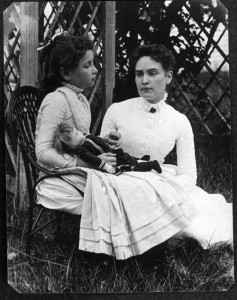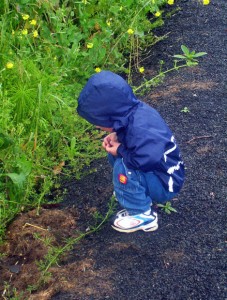Today is the birthday of the amazing and courageous Helen Keller, who was left blind and deaf after an illness at the age of 19 months.

Lost in a world she could neither hear nor see, she was unable to communicate and in her own words “less than an animal.” With the help and guidance of Anne Sullivan, she not only learned to talk, she learned to read and write, and earned a college degree.
Helen Keller wrote, spoke, and travelled internationally and opened the world for generations to come. Though she could not see or hear the world, she could “imagine it…sense, and believe in it.” Some of her other words remind us of the experience of young children where “Everything is a wonder….”
This month, blog posts have been about the wonder of science. Sometimes, as parents and caregivers, we are reluctant to ‘do’ science with kids. What if we don’t know enough? What if we teach something wrong? While we might be hesitant, kids certainly aren’t. They being discovering, exploring, and creating their own science experiments very early. Kids test over and over to see what might happen and are driven to figure things out for themselves. Did you know that kids ask about 300 questions a day? Many of them start with why.
To include science for kids, we don’t need to be rocket scientists. We also don’t need to turn the kitchen into a science lab. Children will play on their own given time and space. They do not require expensive materials for science either. We can foster children’s sense of wonder with ordinary materials and opportunities. The keyword is PLAY.
 Kids don’t need to be the only ones that ask questions. We can ask them, “What do you hear? What do you see?” Touch, taste, and smell are exciting to explore too. Nature invites more questions, “Where are the ants going? What’s under the rock? What’s happening to the leaves on the trees?”
Kids don’t need to be the only ones that ask questions. We can ask them, “What do you hear? What do you see?” Touch, taste, and smell are exciting to explore too. Nature invites more questions, “Where are the ants going? What’s under the rock? What’s happening to the leaves on the trees?”
Helen Keller’s example inspires us all. Could today be ‘wonder-full’ for your child?
